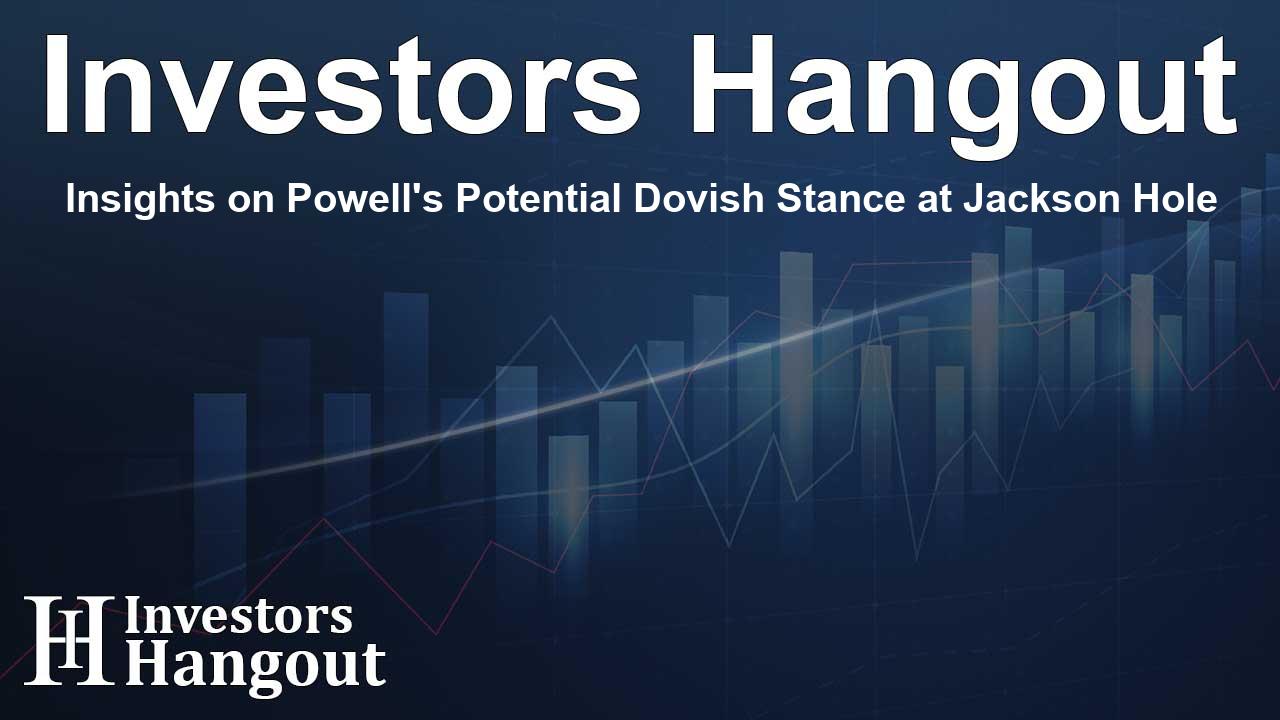Insights on Powell's Potential Dovish Stance at Jackson Hole

Jerome Powell's Dovish Stance at Jackson Hole Symposium
The Jackson Hole Economic Symposium, an important gathering usually organized by the Federal Reserve Bank of Kansas City, brings together central bankers, economists, and policymakers from across the globe. This annual occasion facilitates discussions on pressing economic matters, and this year it holds particular significance.
Amid uncertain monetary policy landscapes, the symposium serves as a platform for the Fed to communicate potential changes in its approach. Many eyes will be on Jerome Powell's opening remarks, as market observers anticipate hints that he may favor a reduction in interest rates at an upcoming Federal Open Market Committee (FOMC) meeting.
Factors Influencing Powell's Outlook
As Powell prepares to address the gathering, several crucial aspects will play a role in framing his message these include:
1. Cooling Labor Market
The latest employment data indicates a shift in the labor market that may lead Powell to consider a change in policy. Recent reports show a decline in job growth, suggesting that the labor market might not be as robust as previously believed. This trend could prompt the Fed to lower rates to stimulate economic activity.
2. Inflation Trends
While certain economic indicators have demonstrated inflationary pressures, others like the Consumer Price Index (CPI) and Personal Consumption Expenditures (PCE) remain steady enough to avoid alarm bells. Although tariffs are impacting prices, the overall data may not yet necessitate an aggressive response from the Fed. Future disclosures could shed more light on this evolving situation.
3. Market Anticipation
Market sentiment indicates strong expectations for a rate cut. Recent surveys suggest there's about an 85% certainty that the Federal Reserve will act to lower rates in September. While Powell may tread carefully not to make definitive commitments in his speech, he is likely to nudge markets in a specific direction to prevent volatility.
4. Political Influence
The external pressures from political entities could further shape Powell's approach. While it's uncertain how much influence President Trump has, a dovish pivot may ease some of that political tension, freeing Powell to make moves that align with economic needs.
Should Investors Consider Momentum Strategies?
The conversation also extends to investment strategies during bullish trends. Many investors believe that capitalizing on momentum in rising markets is a reliable approach. However, this isn't always the case. Current market dynamics showcase rapid shifts between sectors, making momentum-driven strategies less effective than one might assume.
Evaluating Momentum Strategies
Success with momentum strategies hinges on consistent price trends and leading groups of stocks. When sectors are rapidly rotating, buy signals may present themselves at less opportune moments. Investors typically experience the most benefits when they can enter a trend early in its cycle.
At present, momentum strategies appear to be facing challenges relative to the broader market. For example, standout players like Palantir Technologies (NASDAQ: PLTR), Meta Platforms (NASDAQ: META), and Broadcom (NASDAQ: AVGO) highlight the potential of this strategy, yet include laggards such as Philip Morris International (NYSE: PM) and Netflix (NASDAQ: NFLX) that complicate the outlook.
The Tweet of the Day
In summary, the upcoming Jackson Hole Symposium could present pivotal insights from Jerome Powell, informing the markets and laying the groundwork for future economic policies.
Frequently Asked Questions
What is the Jackson Hole Economic Symposium?
The Jackson Hole Symposium is an annual meeting where central bankers and economists discuss global economic issues and trends.
What is Jerome Powell expected to address at the symposium?
Powell is likely to share insights regarding the monetary policy direction, possibly indicating an inclination to cut rates.
Why would the Fed lower interest rates?
Lowering interest rates can help stimulate economic growth during periods of economic slowdown, such as when the labor market shows signs of cooling.
How does market sentiment influence the Fed's decisions?
Market expectations can pressure the Fed to adjust rates to support economic stability and confidence, especially if a significant portion of investors anticipates changes.
What are some common strategies investors use in rising markets?
Many investors employ momentum strategies, but effectiveness varies with market conditions, as rapid sector rotations can complicate outcomes.
About The Author
Contact Ryan Hughes privately here. Or send an email with ATTN: Ryan Hughes as the subject to contact@investorshangout.com.
About Investors Hangout
Investors Hangout is a leading online stock forum for financial discussion and learning, offering a wide range of free tools and resources. It draws in traders of all levels, who exchange market knowledge, investigate trading tactics, and keep an eye on industry developments in real time. Featuring financial articles, stock message boards, quotes, charts, company profiles, and live news updates. Through cooperative learning and a wealth of informational resources, it helps users from novices creating their first portfolios to experts honing their techniques. Join Investors Hangout today: https://investorshangout.com/
The content of this article is based on factual, publicly available information and does not represent legal, financial, or investment advice. Investors Hangout does not offer financial advice, and the author is not a licensed financial advisor. Consult a qualified advisor before making any financial or investment decisions based on this article. This article should not be considered advice to purchase, sell, or hold any securities or other investments. If any of the material provided here is inaccurate, please contact us for corrections.
